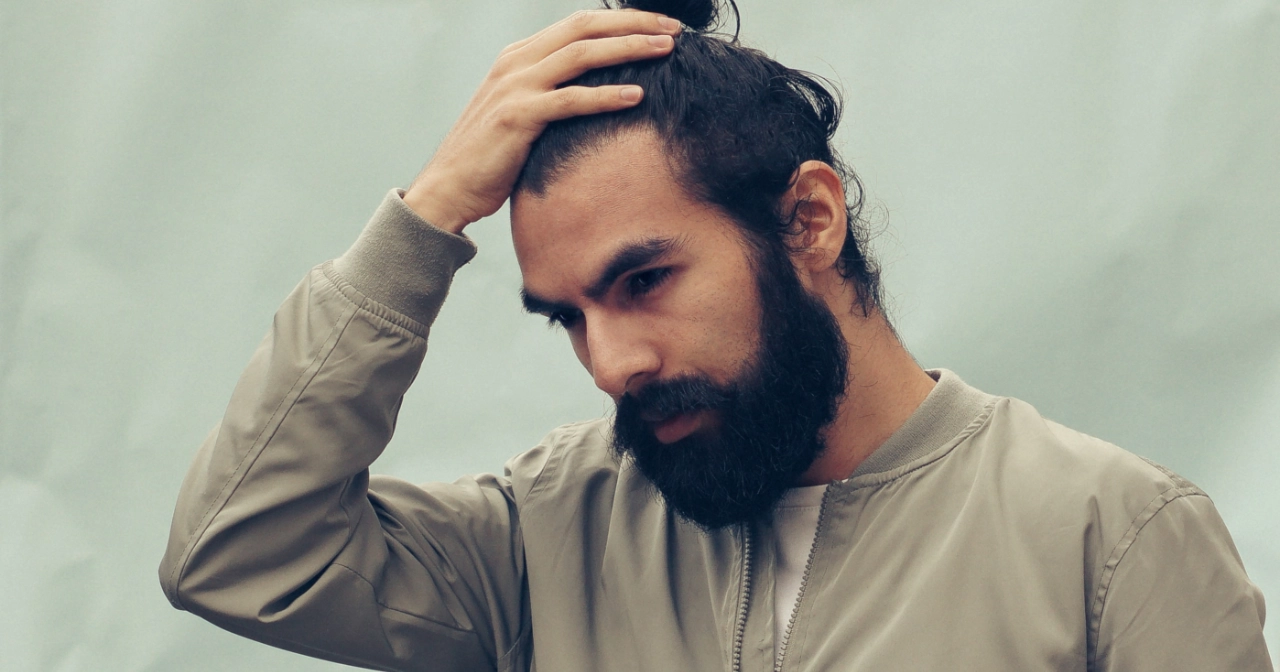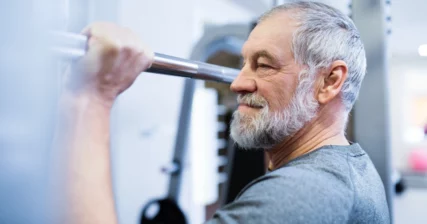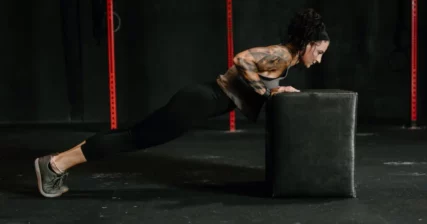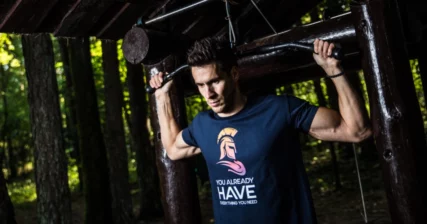To a certain extent, yes, exercise offsets age-related hormonal imbalance. Exercise’s impact on hormones is more significant than most people give it credit for.
I wouldn’t expect the news to cover these because there’s little money to be made selling exercise compared to selling pharmaceuticals.
So, please pass this along to others who need more incentive to get to the gym, hire a personal trainer, and get their health and fitness under control.
It doesn’t matter how old you might be; you’ll undoubtedly benefit from a good strength and conditioning program.
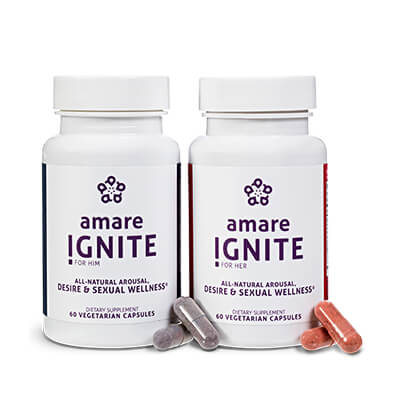
Hormone Balance, Mental Wellness
Amare Ignite for Her and Ignite for Him are all-natural proprietary blends contains adaptogens, herbs and phytonutrients to support the balance of male and female sex hormones.
- Helps maintain normal hormone balance*
- Supports normal sexual arousal, desire, vitality*
- Supports blood flow*
- Helps stabilize mood*
- Supports overall reproductive health*
First, the bad news if you choose not to exercise
Before getting to the good news, let’s review what happens if you choose to live like most people do today…not exercising regularly.
In that case…
- Strength and muscle peak about age 30 and decrease 15% per decade from 50-70 years of age, then decrease 30% per decade after that.
- The average 70-year-old has 30% of the strength of their 30-year-old former self.
- For half of men, testosterone decreases 1% per year beginning at age 30.
- Growth hormone decreases 14% per decade after the age of 20, leaving the average 60-year-old with half the growth hormone of their younger self
- Insulin-like growth factor 1 (IGF-1) decreases 10% per decade after age 20-30
Muscle mass decreases, making you weak and raising your blood sugar. As blood sugar rises, so does insulin, eventually leading to insulin resistance and type II diabetes, as well as increasing your risk of cancer and cardiovascular disease.
Bone density decreases too.
And if that isn’t bad enough, check out what happens as testosterone plummets. It significantly increases your risk of:
- Alzheimer’s disease
- Cardiovascular disease
- Dementia
- Obesity
- Type II diabetes
With all that said, let’s move into what happens when you follow a good strength and conditioning program throughout middle and late adulthood.
The Impact of Exercise on Age-Related Hormones
Zouhal, et al. performed a systematic review of existing research on exercise and age-related hormones.
Their overall summary stated:
This systematic review indicates that exercise training increases basal total testosterone, IGF-1, SHBG, hGH, DHEA and DHEA-S in males and females ≥ 40 years of age.
That’s quite a list of hormones. But what does it all mean?
Testosterone
Exercise raises testosterone (T) in both men and women. In younger years, it increases total testosterone and may boost free testosterone. In older adults, it seems to increase free but not always total testosterone.
Your body can only use free testosterone, so that’s the form that matters anyway. The rest of your testosterone (total minus your free T) is bound by sex hormone-binding globulin (SHBG).
Exercise in older adults raises free testosterone, helping to maintain muscle mass and bone density, and warding diseases associated with low T.
I should also mention that this testosterone-raising effect will only continue so long as an individual pushes himself or herself harder than in the past. This is why periodized programming is so important. You need to consistently, progressively increase intensity to continue experiencing exercise benefits progressively. And the longer you train consistently, the more testosterone-raising benefit you get from exercise.
Read also: 9 Causes of Low Testosterone.
hGH and IGF-1
Human growth hormone (hGH) plays a crucial role in muscle growth, tissue repair, and fat metabolism. However, it isn’t easy to measure, so your doctor is more likely to measure insulin-like growth factor-1 (IGF-1).
Research shows both hormones rise in response to strength training, though endurance training or “cardio” does not have much of a positive impact.
Rises in blood sugar or fatty acids blunt growth hormone secretion, so I almost always recommend avoiding carbs and fat before a workout.
DHEA
DHEA is another androgenic hormone. In women, it’s a significant precursor for testosterone, whereas, in men, it plays a less significant but still vital part of testosterone production.
It’s long been considered an anti-aging hormone and is one of the few still sold as a nutritional supplement.
Though exercise helps raise DHEA, it may not be enough to keep levels optimal. In that case, supplementation may be appropriate. I take 25 mg a day myself.
Insulin
Being that muscle mass makes up the majority of your storage space for carbohydrates, or sugar, it shouldn’t be a surprise that those to strength train consistently have lower insulin levels.
Lower insulin makes it easier to maintain healthy body composition and dramatically reduces the risk of insulin resistance and type II diabetes.
Conclusion
If you want to maintain a high quality-of-life, late in life, you need to follow a good strength and conditioning program throughout your life.
Exercise offers more benefits, impacts more hormones, and costs far less than any drug, with few side effects outside of muscle soreness and occasional injuries.
Oh, and if you don’t know where to start, join VIGOR Training, or if you’re near Hudson, Wisconsin, book a personal training consultation with me.

Feel Better Fast. Guaranteed.
Energy+, EDGE, and MentaBiotics make up the Happy Juice supplement stack, with ingredients clinically proven to:
- decrease anxiousness scores by 55%
- decrease irritability scores by 60%
- decrease fatigue by 64%
- decrease anger 54%
- decrease tension by 45%
- decrease confusion by 43%
- decrease overall distress by 49%
- increase good bacteria by 70%
- decrease negative mood by 105%
- increase positive mood by 211%
